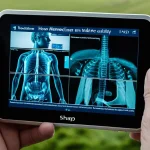National frameworks and guidelines for diabetes management in the UK
The UK diabetes guidelines are central to shaping diabetes care nationwide, aiming to ensure consistent and evidence-based practices. The NHS diabetes care policies set clear standards for diagnosis, treatment, and ongoing management, facilitating proactive approaches to reduce complications and improve patient quality of life.
A key element is the NICE diabetes standards, which provide comprehensive, evidence-based recommendations for clinical care. These standards cover everything from monitoring blood glucose levels to managing cardiovascular risks. Their implementation improves health outcomes by standardising diabetes treatment and promoting best practices across all NHS services.
Also to see : How is the UK tackling the mental health crisis among its youth?
Health system frameworks play a pivotal role in the UK by integrating these guidelines into routine care pathways. This standardisation allows healthcare professionals to work within a cohesive structure, ensuring patients receive consistent advice and treatment regardless of location. The frameworks also facilitate auditing and quality improvement, helping to identify areas where NHS diabetes care policies can evolve for greater efficiency and effectiveness.
Together, these national frameworks and guidelines deliver a structured, well-coordinated approach to diabetes management throughout the UK.
Also to see : What Are the Potential Benefits of a Plant-Based Diet on UK Public Health?
Multidisciplinary approaches in diabetes management
Working together for comprehensive care
In the UK, multidisciplinary diabetes teams are central to effective diabetes management. These teams typically comprise healthcare professionals such as general practitioners (GPs), diabetes specialist nurses, dietitians, and endocrinologists. Each professional contributes distinct expertise, ensuring patients receive holistic care tailored to their individual needs.
The structure of UK diabetes clinics often facilitates close collaboration. GPs handle routine monitoring and initial diagnosis, while diabetes nurses provide education on self-management and blood glucose monitoring. Dietitians advise on nutrition, a crucial factor in diabetes control, and specialists manage complex cases or complications. This coordinated effort helps prevent overlaps or gaps in treatment.
Evidence shows that patients managed by well-organized multidisciplinary diabetes teams benefit from improved glycaemic control and reduced hospital admissions. By integrating skills and communicating regularly, teams optimize treatment plans and address lifestyle, medication, and comorbidity concerns cohesively. Such collaborative models demonstrate the profound impact of teamwork in diabetes care.
Personalised care planning and patient education
Individualized diabetes care is essential for effective management. Developing and regularly reviewing personalised care plans helps address each patient’s unique needs. These plans consider lifestyle, medical history, and treatment goals, promoting better adherence and outcomes.
In the UK, diabetes education is widely available through structured programmes. These sessions empower patients by enhancing their understanding of diabetes, medication, and risk factors. Evidence shows that such education improves glycaemic control and quality of life by fostering confidence and informed decision-making.
Support for self-management is a key element. Patients receive guidance on monitoring blood glucose, dietary adjustments, and physical activity. Regular follow-up and tailored advice encourage sustained lifestyle interventions, reducing complications and healthcare costs.
By combining individualized care with comprehensive diabetes education UK programmes and ongoing self-management support, patients gain practical tools and motivation. This integrated approach turns knowledge into effective actions, enabling long-term control and improved wellbeing.
Technology and digital health tools in diabetes care
Exploring digital solutions for effective diabetes management
The rise of diabetes technology UK has transformed how patients manage their condition. Digital health NHS initiatives increasingly promote remote monitoring, empowering users to track blood glucose levels in real time from home. This convenience enhances patient engagement and clinical outcomes.
Apps and online platforms play a vital role. For example, the NHS Digital Diabetes Prevention Programme offers personalized guidance, lifestyle tracking, and education accessible anytime. By using these tools, patients can identify patterns and adjust behaviours proactively.
Integration into clinical settings is crucial. Primary care providers now incorporate data from apps and meters into consultations, enabling tailored treatment plans. Likewise, specialist care benefits from continuous data, supporting timely interventions.
Overall, digital health NHS tools streamline management by combining technology with everyday care. Patients gain autonomy through real-time feedback, while clinicians access comprehensive insights remotely. This synergy improves both convenience and healthcare quality in diabetes management.
Community support and prevention initiatives
Building stronger health networks
The National Diabetes Prevention Programme in the UK spearheads efforts to curb the rise of diabetes through targeted community health programmes. These programmes work closely with local groups to identify at-risk individuals and provide tailored advice on lifestyle changes. In addition to NHS support groups, which offer peer-led encouragement and practical coping strategies, community outreach plays a crucial role in raising awareness and fostering engagement.
Public health campaigns complement these efforts by delivering consistent messages about diet, exercise, and early detection. For example, campaigns emphasize reducing sugar intake and increasing physical activity to directly address the root causes of diabetes. Effective diabetes prevention UK strategies rely on this multi-layered approach, combining professional support with grassroots networks.
By integrating these initiatives, communities are empowered to take proactive steps against diabetes. This integration ensures sustained motivation and accessible resources, helping individuals make lasting changes. Ultimately, community support and prevention initiatives form a critical frontline in the fight against diabetes, enhancing overall public health resilience.
Pathways for monitoring and treatment in the UK context
In the UK, diabetes monitoring is guided by structured care pathways to ensure timely detection and management of complications. Regular monitoring involves scheduled checks such as HbA1c tests, blood pressure measurements, and foot examinations, aligning with national guidelines to optimize patient outcomes. These monitoring intervals are tailored according to individual patient needs and diabetes type.
Treatment protocols incorporate both pharmacological and non-pharmacological interventions. Medication management includes glucose-lowering agents, insulin therapy, and lipid-lowering drugs when indicated. Alongside pharmacotherapy, lifestyle modifications—such as dietary advice and exercise promotion—form a crucial part of ongoing care pathways.
When patients exhibit complications or inadequate control, clear referral and escalation processes are triggered. Primary care teams coordinate with specialist diabetes clinics to adjust treatment plans or initiate advanced therapies. This structured referral ensures patients receive expert input without delay, maintaining a continuum of care within the NHS framework.
These UK pathways emphasize a multidisciplinary approach, combining regular monitoring, individualized treatment, and responsive escalation to support effective diabetes management.



